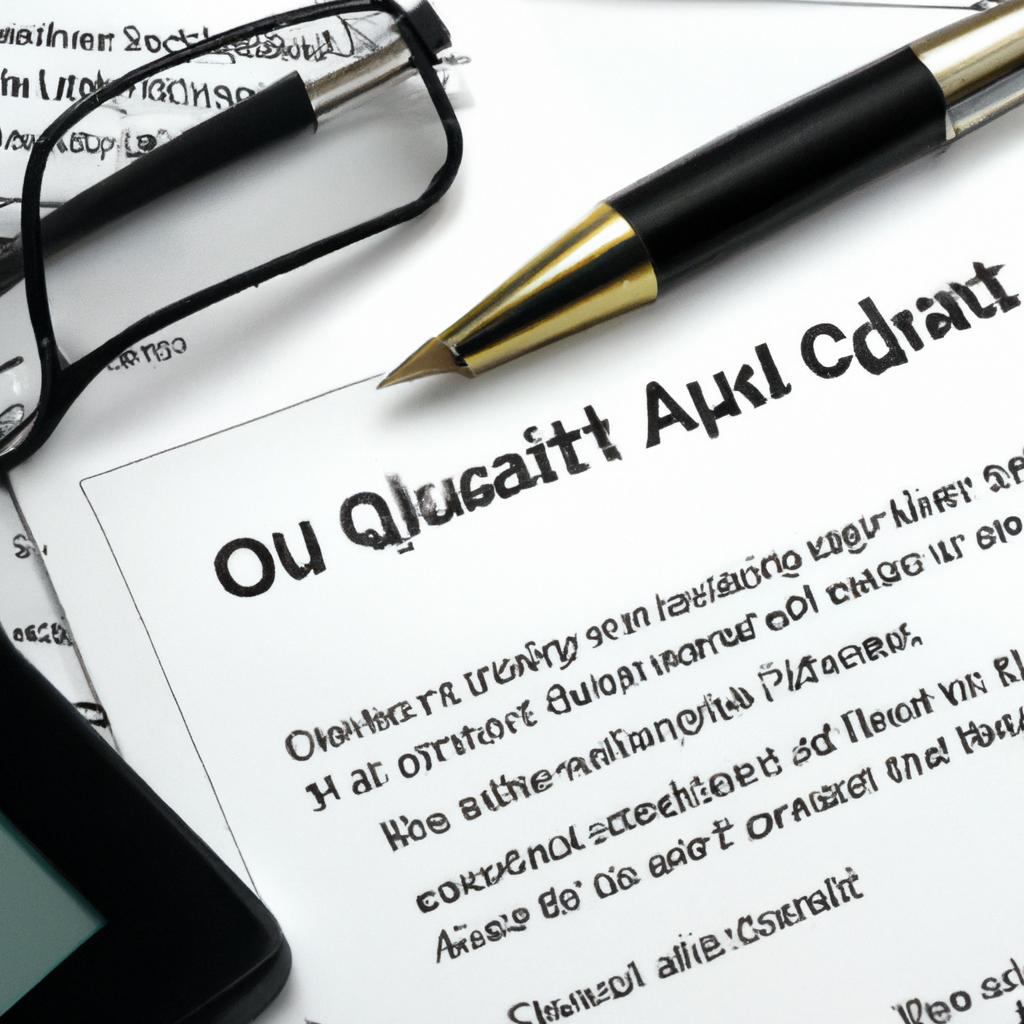Transferring ownership of a property through a quit claim deed is a straightforward process, but it must be done correctly to ensure that the transfer is legally binding. In this article, we will guide you through the steps of recording a quit claim deed, making sure you have all the necessary information and details to complete the process smoothly. As specialists in estate planning and property law, Morgan Legal Group is here to provide expert advice and support to help you successfully navigate the intricacies of property transfers.
Understanding the Purpose and Legal Implications of a Quit Claim Deed
When it comes to , it is important to recognize the significance of transferring property ownership. A Quit Claim Deed is a legal document used to transfer a property right, often used in situations where the transfer is between family members or in cases of divorce. It is essential to comprehend the implications of signing a Quit Claim Deed, as it involves relinquishing any claim to the property without any guarantees of ownership or title.
Recording a Quit Claim Deed involves following a specific process to ensure that the transfer is legally recognized. It is crucial to take the necessary steps to properly record the Quit Claim Deed to avoid any future disputes or challenges. Here are some key points to consider when recording a Quit Claim Deed:
- Consult with a legal professional: Before proceeding with a Quit Claim Deed, it is advisable to seek advice from an experienced lawyer to ensure that all legal requirements are met.
- Complete the Deed: Make sure the Quit Claim Deed is accurately filled out and signed by all parties involved in the transfer.
- File the Deed with the County Clerk: The Quit Claim Deed must be filed with the County Clerk or Recorder’s office in the county where the property is located to make the transfer official.

Key Steps to Properly Drafting and Executing a Quit Claim Deed
When it comes to recording a quit claim deed, there are essential steps that must be followed to ensure a smooth and legally binding process. First and foremost, it is crucial to accurately draft the deed with all the necessary information included. This includes the names of the grantor and grantee, the property description, and any other relevant details. Failure to provide accurate information can lead to complications in the future.
- Properly identify the parties involved in the transaction
- Include a detailed property description
- Clearly outline the terms of the transfer
Once the quit claim deed has been drafted, it must be executed according to the laws of the state where the property is located. This typically involves signing the deed in the presence of a notary public to ensure its validity. Additionally, it is essential to record the deed with the appropriate county or municipal office to make the transfer of ownership official.
- Sign the deed in the presence of a notary public
- Record the deed with the county or municipal office
- Ensure all parties receive a copy of the recorded deed

Ensuring Validity and Effectiveness of a Quit Claim Deed through Proper Filing Procedures
Recording a quit claim deed is an essential step in ensuring the validity and effectiveness of the transfer of property ownership. Proper filing procedures must be followed to protect the interests of both the grantor and the grantee. By adhering to the following steps, you can ensure that your quit claim deed is recorded correctly:
- Obtain the Original Document: Ensure that you have the original executed quit claim deed in your possession before proceeding with the filing process. This document must be signed by the grantor in the presence of a notary public to be considered valid.
- Visit the County Recorder’s Office: Take the original quit claim deed to the County Recorder’s Office in the county where the property is located. Submit the document for recording along with any required fees. The County Recorder will review the deed to ensure that it meets all legal requirements before officially recording it in the public records.

Consulting with Experienced Legal Professionals for Guidance on Recording a Quit Claim Deed
When preparing to record a quit claim deed, it is essential to seek guidance from experienced legal professionals who specialize in real estate transactions. At Morgan Legal Group, our team of knowledgeable attorneys can provide you with the expertise and advice needed to ensure a smooth and successful recording process. With years of experience in handling real estate matters, we can offer valuable insights and strategies to help you navigate the complexities of recording a quit claim deed.
Consulting with our legal professionals can help you avoid potential pitfalls and mistakes that may arise during the recording process. Our team can assist you in understanding the legal requirements for recording a quit claim deed, as well as provide guidance on how to properly complete the necessary paperwork. By working with our experienced attorneys, you can have peace of mind knowing that your real estate transaction is in capable hands.
Q&A
Q: What is a quit claim deed?
A: A quit claim deed is a legal document used to transfer ownership of real estate from one party to another.
Q: Why would someone need to record a quit claim deed?
A: Recording a quit claim deed is important to officially document the transfer of ownership and protect the interests of both the grantor and the grantee.
Q: How do I record a quit claim deed?
A: To record a quit claim deed, you must first fill out the necessary forms and have them notarized. Then, you need to take the deed to the county recorder’s office where the property is located and pay a recording fee.
Q: What information is needed to record a quit claim deed?
A: You will need the legal description of the property, the names and addresses of the grantor and grantee, and any other relevant information specific to the property.
Q: Are there any potential pitfalls to be aware of when recording a quit claim deed?
A: It’s important to make sure the deed is properly executed and notarized, as any errors or omissions could cause delays or complications in the transfer of ownership. It’s also a good idea to consult with a real estate attorney to ensure everything is in order.
In Conclusion
In conclusion, recording a quit claim deed is a simple yet important step in transferring property ownership. By following the steps outlined in this guide, you can ensure that your transaction is properly documented and legally recognized. Remember to consult with a real estate attorney or local county office if you have any questions or concerns. With the right preparation and attention to detail, you can confidently navigate the recording process and enjoy the peace of mind that comes with a successful property transfer. Thank you for reading and best of luck with your future real estate endeavors!

